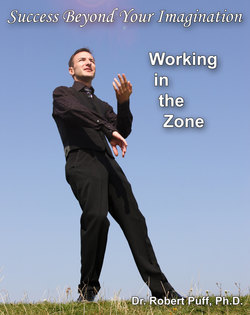Читать книгу Success Beyond Your Imagination: Working In the Zone - Dr. Robert Puff - Страница 4
На сайте Литреса книга снята с продажи.
One Brain, Several Minds
ОглавлениеIn the course of our daily lives, we not only get mixed messages from other people and outside influences, but from within our own minds as well. As a clinical psychologist, I have worked with children and adults alike. When we come into the world, our minds are without preconceptions. We cry, sleep and eat by instinct, pure and simple; however, before we are three years old we start to voice our likes and dislikes. We learn to want something simply because we like it, not because we need it to survive.
Enter what I call the Egoic Mind. Yes, the root word there is ego. The Egoic Mind tells us that we are never quite satisfied. It makes us want more, want something different. It tells us we are never quite good enough, sure enough or happy enough. You get the picture. From this mind stems the commentary that goes on within each and every one of us. In this state of mind, we become preoccupied with judging people, critiquing our performance and the performance of others.
This is in contrast to the Learning Mind. We are using the Learning Mind when we take on a new task or skill. This state of mind brought you from high school, to specialized training or college and then into your current field. You use it every time you are given a new task, a new project or even a whole new position in your career path. Focus, concentration, the acquisition of new skills and assimilation of new data are the hallmarks of this function of our brains.
The Learning Mind has most likely been the source of some of your greatest accomplishments, some of the things which you are most proud of. Chances are, you credit your career up to this point to the facts, processes, and theories that you have learned, whether objectively in classrooms and boardrooms, or subjectively in the nuances of personal and professional relationships. As you can see, the Learning Mind is a very important tool.
The Zone Mind is a little more difficult to define, but is easier to grasp from example. Think for a moment of a great dancer like Fred Astaire, or Gregory Hines, or perhaps you have seen a Cirque du Soleil show and marveled at the performers. When the dancers perform their routines they are moving fluidly and seamlessly. They do things with their bodies that make you stare in amazement at what the human body can achieve!
Do you guess that they are thinking about how to move their hips or get their body to tap, bend or spin as they are executing a move? Do you imagine that every move is preceded by a question of whether they can pull it off, and followed by an evaluation of whether they correctly executed that segment of the routine? Is their Egoic Mind chattering all the way through it?
No. These masters are not engaging in mind-chatter. If they were caught in mind-chatter they couldn’t dance nearly as well, and certainly not with the characteristic grace that makes it look so easy. They are in the zone. The energy that it requires to critique, question and continuously direct oneself detracts from the energy available to put into the activity or performance itself. Dancers of that caliber have trained to the point that their skill becomes second nature. It’s no longer something outside of themselves that they aspire to. They internalize the given skill and it becomes an integral part of them.
When a person is well trained, the Learning Mind has already gone through investing all of the energy to learn the skill. Naturally, there are moments of running over routines and little moments of self-talk before a performance, but for the most part, they simply do it. At the time of the performance their mind becomes quiet, except for the actual thoughts of “Do this…now that…” and so it flows from them. They are not in the past, critiquing. They are not in the future, worrying. They are in the present moment, simply doing.
It’s the same with top athletes in any field. Byron Scott, of the Los Angeles Lakers, said that when he finds himself in the zone, “All you can hear is this little voice inside you, telling you 'Shoot' every time you touch the ball, because you know it's going in. Nobody outside can penetrate this world and the person guarding you wishes he wasn't...I could shoot blindfolded from half court over my head and it would go in.”
How do you explain and achieve this kind of absolute clarity?
